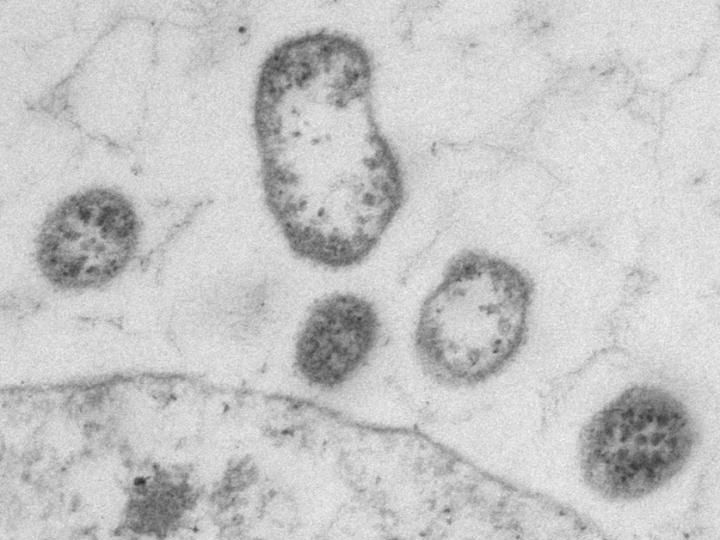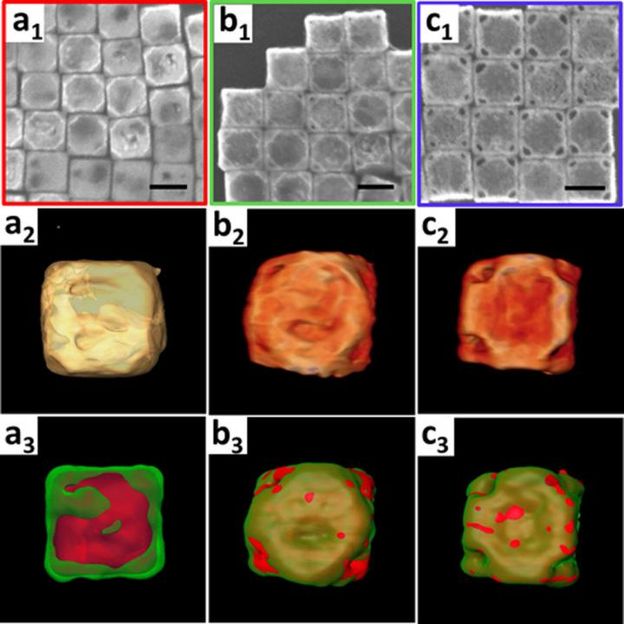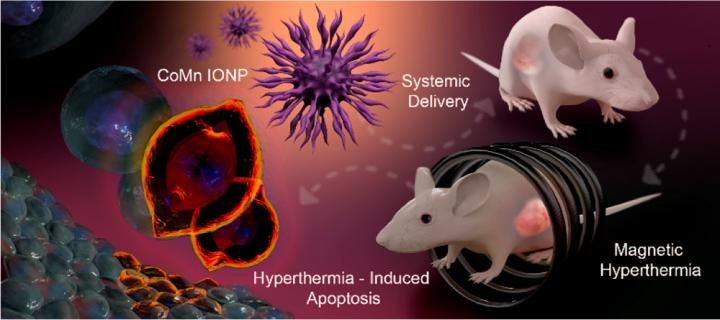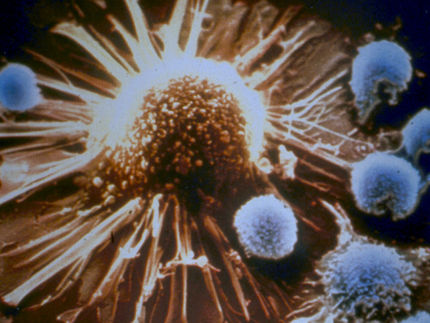Designer Viruses Stimulate the Immune System to Fight Cancer
Swiss scientists have created artificial viruses that can be used to target cancer. These designer viruses alert the immune system and cause it to send killer cells to help fight the tumor. The results provide a basis for innovative cancer treatments.

This is a view of a modified lymphocytic choriomeningitis virus (LCMV).
© UNIGE / Doron Merkler
Most cancer cells only provoke a limited reaction from the immune system – the body’s defense mechanism – and can thus grow without appreciable resistance. By contrast, viral infections cause the body to release alarm signals, stimulating the immune system to use all available means to fight the invader.
Bolstered defenses
Immunotherapies have been successfully used to treat cancer for many years; they “disinhibit” the body’s defense system and so also strengthen its half-hearted fight against cancer cells. Stimulating the immune system to specifically and wholeheartedly combat cancer cells, however, has remained a distant goal. Researchers lead by Professor Daniel Pinschewer from the University of Basel and Professor Doron Merkler from the University of Geneva have now succeeded in manufacturing innovative designer viruses that could do exactly that.
The researchers built artificial viruses based on lymphocytic choriomeningitis virus (LCMV), which can infect both rodents and humans. Although they were not harmful for mice, they did release the alarm signals typical of viral infections. The virologists also integrated certain proteins into the virus that are otherwise found only in cancer cells. Infection with the designer virus enabled the immune system to recognize these cancer proteins as dangerous.
The unique combination of alarm signals and the cancer cell protein stimulated the immune system to create a powerful army of cytotoxic T-lymphocytes, also known as killer cells, which identified the cancer cells through their protein and successfully destroyed them.
Hope for new cancer treatments
The treatments available to cancer patients have developed enormously in the last few years. However, as the researchers report, current treatments are still inadequate in combating many forms of cancer. “We hope that our new findings and technologies will soon be used in cancer treatments and so help to further increase their success rates,” says the study’s senior author, Professor Daniel Pinschewer.
Original publication
Sandra M. Kallert, Stephanie Darbre, Weldy V. Bonilla, Mario Kreutzfeldt, Nicolas Page, Philipp Müller, Matthias Kreuzaler, Min Lu, Stéphanie Favre, Florian Kreppel, Max Löhning, Sanjiv A. Luther, Alfred Zippelius, Doron Merkler, & Daniel D. Pinschewer; "Replicating viral vector platform exploits alarmin signals for potent CD8+ T cell-mediated tumour immunotherapy"; Nature Communications; 2017
Most read news
Original publication
Sandra M. Kallert, Stephanie Darbre, Weldy V. Bonilla, Mario Kreutzfeldt, Nicolas Page, Philipp Müller, Matthias Kreuzaler, Min Lu, Stéphanie Favre, Florian Kreppel, Max Löhning, Sanjiv A. Luther, Alfred Zippelius, Doron Merkler, & Daniel D. Pinschewer; "Replicating viral vector platform exploits alarmin signals for potent CD8+ T cell-mediated tumour immunotherapy"; Nature Communications; 2017
Topics
Organizations
Other news from the department science

Get the life science industry in your inbox
By submitting this form you agree that LUMITOS AG will send you the newsletter(s) selected above by email. Your data will not be passed on to third parties. Your data will be stored and processed in accordance with our data protection regulations. LUMITOS may contact you by email for the purpose of advertising or market and opinion surveys. You can revoke your consent at any time without giving reasons to LUMITOS AG, Ernst-Augustin-Str. 2, 12489 Berlin, Germany or by e-mail at revoke@lumitos.com with effect for the future. In addition, each email contains a link to unsubscribe from the corresponding newsletter.
Most read news
More news from our other portals
Last viewed contents

Carrying and releasing nanoscale cargo with 'nanowrappers' - Nanocubes for biomedicine, catalysis and beyond
Anti-mitochondrial_antibody
Kidney

MIRO CANVAS | Automated sample preparation systems | Integra Biosciences






















































